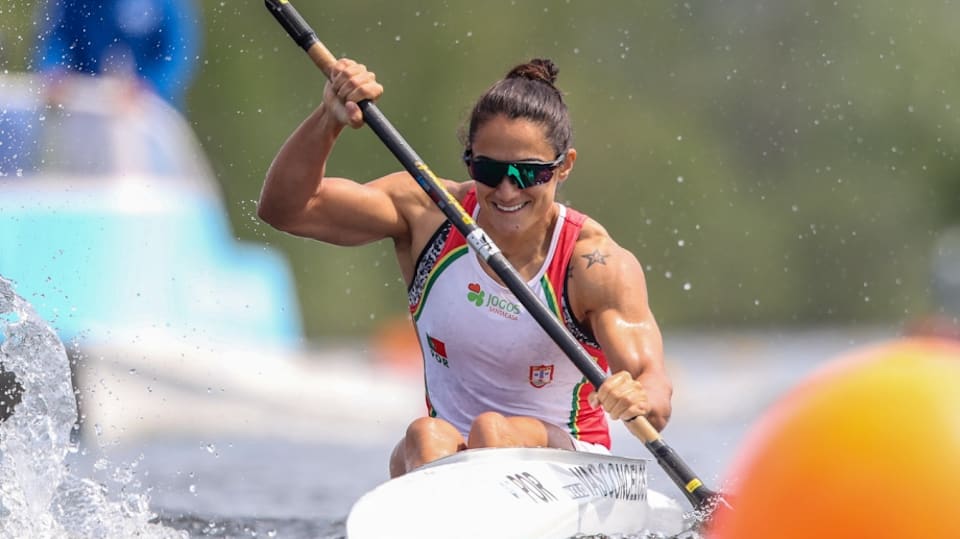
Cuba was in dominant form at the ICF Canoe Sprint World Cup in Barnaul, Russia, on Sunday, adding more gold to their tally from the day before.
The second leg of the World Cup series also doubled as the final IFC global Olympic qualifiers, where six quota places were decided on Friday.
In-form Cuban canoe paddler Yarisleidis Duboys added the women's C2 500 gold medal to the C1 200 victory from the day before.
We are very proud to have been selected to compete for Tokyo at our young age, but we are very happy to paddle together because we are also best friends.
The 19-year-old Duboys teamed up with Nuevo Segura, just one year her junior, to produce a performance that belies their teenage years.
Duboys and Segura threw down the gauntlet, racing to a boat-length lead after the first 250 metres of the race. There was no stopping the Cuban duo as they extended their lead to win by nearly four seconds.
Behind them, Uzbekistan got embroiled in a tussle with Chile for second place on the podium. Chile had to settle for back-to-back World Cup bronze medals, with Uzbekistan's Dinoza Rakhmatova and Nilufar Zokirova claiming silver.
“My friend and I have trained very hard this season, so we are very happy to win here, but the race is not finished because now we are thinking about Tokyo,” Duboys told canoeicf.com
“We are very proud to have been selected to compete for Tokyo at our young age, but we are very happy to paddle together because we are also best friends.”
Highlighting their dominance in the canoe, Cuba added the men's C2 1000 gold medal, with Fernando Jorge bagging his second medal of the World Cup.
Jorge won the silver medal in a Cuban 1-2 finish in the men's C1 1000 final the day before and teamed up with Serguey Torres on Sunday.
The pair went toe-to-toe with the German boat of Felix Gebhardt and Peter Kretchmer leading the field in the opening strokes. However, the two Cubans found their rhythm over the second part of the race for a comfortable win in a time of 3:43.167.
Germany held off a challenge from the Russian crew for second place finishing in a time of 3:45.895.
Portugal's Joana Vasconcelos flourished on the Siberian waters flying high after punching her ticket for Tokyo 2020 two days earlier.
Paddling from lane four, Vasconcelos made her intentions clear in the women's K1 500 final sprinting into a comfortable lead.
The home stretch turned into a tussle with South Africa's Esti van Tonder, who put in a strong challenge from one of the outside lanes.
Vasconcelos managed to hold on for a nail-biting win crossing the line in a time of one minute and 56 seconds (1:56.183). Van Tonder finished second in 1:56.218, with the silver medal serving as a consolation prize after she missed out on Olympic qualification.
Anamaria Govorcinovic, who became the first female Croatian canoe sprinter to qualify for the Olympic Games in Szeged, Hungary two weeks ago, rounded off the podium clocking 1:56.536.
German pair paddles to the top of the podium
In the men's K2 1000, the German pairing of Felix Frank and Tamas Gecso cruised to victory leading the race from the start. The Sweden boat of Dennis Kernen and Albert Petersson provided some pressure keeping the Germans within striking distance at the halfway mark.
Frank and Gecso held their form to clinch the gold medal in a time of 3:22.131, with Sweden settling for silver in 3:24.360. The Russian pair of Artem Korovin and Alexey Shishkin rounded off the podium, clocking 3:27.189 to give the home crowd something to cheer about.
